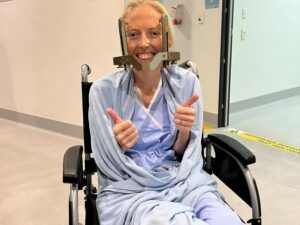I am about to turn 53 and am a mum of 3, Nan of 1 and a very proud midwife and nurse. I am SDHD and have multiple head and neck paragangliomas.
I have had weird symptoms from as far back as my late 20’s. Varying diagnoses of migraines, panic attacks, anxiety, irritable bowel, vertigo. It wasn’t until 2013 when I was trying to work out what my ongoing 7 years of abdominal pain was from that things started. Scans had shown nothing but I was palpating my abdomen and felt a mass. Ultrasound finally located it. During surgery when it was excised, I had a hypertensive crisis while under anaesthetic. Diagnosis was an atypical endometrioma.
My BP continued to be high and I was referred to a specialist. I mentioned to him my father had had a pheochromocytoma. He had seen one in his career and was excited I may be a 2nd, but tests failed to find one. I went on antihypertensive meds. There was no mention of further scans or genetic testing. I had no idea the tumours in my father’s neck were linked to his pheochromocytoma.
By 2016 BP was having frequent spikes. I was convinced I was about to have a stroke as BP so high and severe headaches, vertigo, bounding heart rate, pulsitile tinnitus and blurred vision. Crying my GP, I begged for a CT. It showed a carotid body tumour called a paraganglioma. It was the 1st time I’d heard this term.
My father had not only a pheo but multiple glomus tumours. The surgery from removal of these tumours over the years had left him with severe comorbities. He lost his ear and hearing. Speech, swallow and gag reflex. He eventually died from aspiration pneumonia. Back then we didn’t know this could be genetic.
I was referred to a head and neck surgeon who didn’t know what to do with me. She referred me to ENT surgeon. This was where I learned these tumours were genetic. He reassured me we could watch and wait. They are slow growing and usually cause no problems. He ordered a plain PET scan which showed nothing else. I was so relieved no one would be cutting me open, I questioned nothing. Follow up was yearly CT and seeing him to check my vocal chords and swallow.
By 2020, symptoms were increasing. I had pain. I would choke on my own saliva. ENT reassured me that all was good. I started searching myself and found the pheo/para alliance. The Australian site gave me names of endocrinologists. This was where I finally started to get information that these tumours were neuroendocrine in nature.
I saw the endocrinologist in August of 2020 and he explained how I most likely had a gene mutation from my father. He ordered genetic testing and went on a mission to find tissue from my father’s pheochromocytoma. He explained about the different PET scans and how neuroendocrine tumours don’t always show on regular scans . A Gallium 68 Dotatate PET scan showed 5 more paragangliomas, bilaterally on carotid body, jugular foramen base of skull, and two more lower down.
I had genetic testing and in January 2021 found out my father was SDHD positive and so was I. This was not a relief really, but provided so many answers for my mum, who had never had answers for many years. Our family accepted genetic testing and fortunately my siblings were clear. Of my 3 children, only my daughter was positive and as SDHD disease is more likely paternally transferred, she should be ok. She had her first scan early this year and is clear
I had tests for catecholamines and metanephrines. All were elevated. It is too hard to tell which tumour may be secreting. BP continued to be high and heart rate elevated. So in April and June 2021 I was approved for 2 rounds of Lutate radiotherapy. It has stabilised my hormone levels and I have no more tumour growth .
I still have good days and bad days. It is hard knowing I “have a thing” and this is what I have to live with. What I have learned is appropriate referral is so important. For me a partial diagnosis came 3 years after my 1st hypertensive crisis. Full diagnosis and treatment took another 4 years.
If the Government funded a national awareness campaign I may have been diagnosed earlier, and the diagnosis would have been easier for me to understand. I would have known where to go for help earlier.
Watch Michelle feature on Channel 7’s The Latest with Micheal Usher for NET Cancer Day (1o Nov, 2023). Click HERE to watch.








